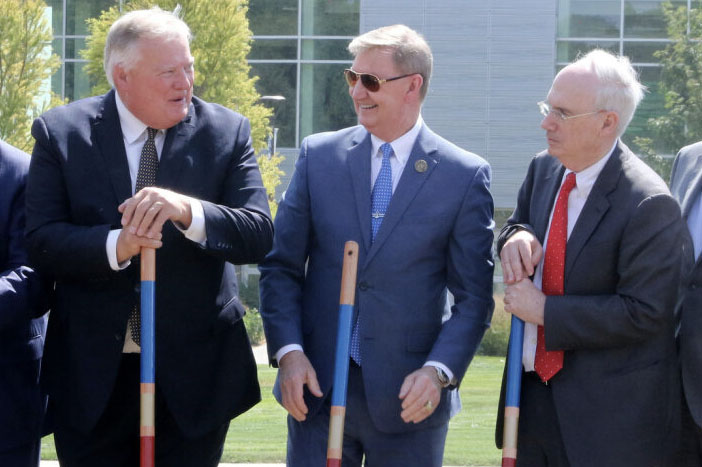On Sept. 5, UNMC and the University of Nebraska at Kearney broke ground on the Rural Health Education Building, a new facility on the UNK campus.
The building will address a critical need for additional health care professionals in rural communities by allowing more students to study and train in central Nebraska – including, for the first time, UNMC medical students.
UNMC College of Medicine Dean Bradley Britigan, MD, offers thoughts on the groundbreaking.
College leaders reacted to the groundbreaking with excitement.
Kelly Caverzagie, MD, associate dean for educational strategy and learning environment, called the expansion into Kearney “yet another way for UNMC and the College of Medicine to help meet the needs of the communities that we serve.”
“This is an incredible opportunity for students from anywhere to be able to benefit from our curriculum in a setting that will give them the opportunity to be medical students in an environment that they are familiar with,” said Wendy Grant, MD, associate dean for student affairs for the college. “The rigors of medical school will not change, but the ability for our students to be in Kearney will give them an opportunity to form relationships which will lead to lifelong dedication to the people of Nebraska.”
Geoffrey Talmon, MD, associate dean for medical education, said that the Kearney campus “presents us with an exciting opportunity to provide students from Greater Nebraska the chance to do their training closer to home and hopefully make some consider a career in medicine that otherwise may not have. It also will allow us to more deeply connect with the incredible health professionals, community members, and organizations in the area to better educate the future doctors that will practice in the state.”
